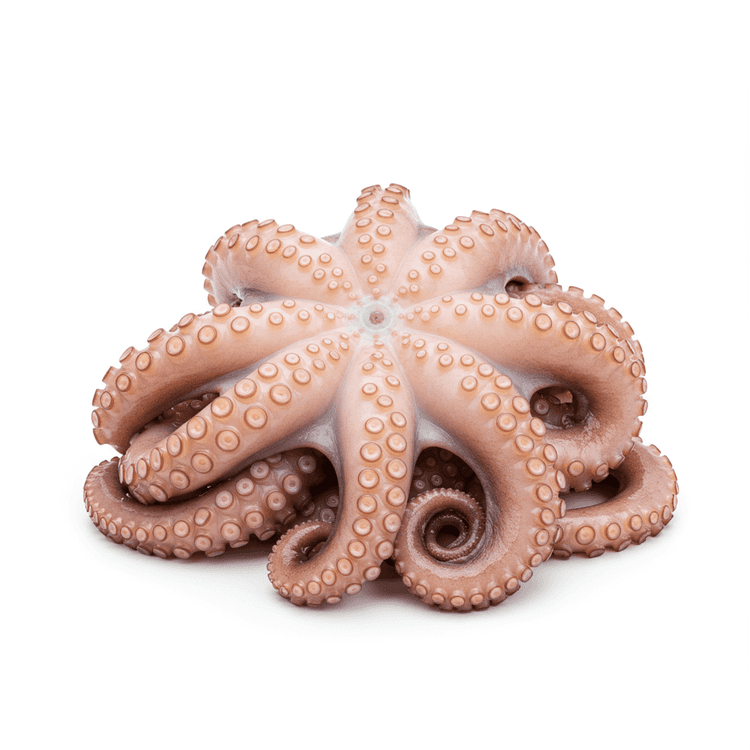
Octopus
Octopus is a fascinating seafood delicacy, known for its unique texture and slightly sweet, briny flavor. This eight-armed cephalopod boasts a firm, yet tender flesh that becomes incredibly succulent when cooked properly. Fresh octopus typically has a reddish-brown to greyish color, transforming to a more vibrant red or purple upon cooking. It is often found in Mediterranean, Asian, and Latin American cuisines, and its culinary versatility makes it a sought-after ingredient for chefs and home cooks alike. When purchasing octopus, look for a firm texture and a fresh, ocean-like scent, avoiding any with a fishy or ammonia-like odor. Learn how to prepare delicious and tender octopus recipes with our easy cooking tips!
Common Uses
- Grilled octopus offers a delightful smoky flavor and tender texture, often served as a tapas dish or appetizer drizzled with olive oil and lemon.- Braised octopus transforms into an incredibly tender and flavorful main course, slow-cooked in wine, tomatoes, and herbs.- Octopus salad is a refreshing and light option, combining cooked octopus with vegetables, herbs, and a tangy vinaigrette dressing.- Fried octopus provides a crispy and satisfying snack, often served with a dipping sauce, ideal for street food or appetizers.- Octopus can be added to seafood stews and paella, adding a unique depth of flavor and texture to hearty one-pot dishes.- Marinated octopus is a popular way to tenderize and infuse flavor into the meat before grilling or pan-frying, experiment with various marinades to suit your taste.
Nutrition (per serving)
Nutrition (per serving)
Calories
164.0kcal (8.2%)
Protein
29.8g (59.6%)
Carbs
4.0g (1.45%)
Sugars
0.0g
Healthy Fat
1.1g
Unhealthy Fat
0.4g
% Daily Value based on a 2000 calorie diet
Nutrition (per serving)
Calories
164.0kcal (8.2%)
Protein
29.8g (59.6%)
Carbs
4.0g (1.45%)
Sugars
0.0g
Healthy Fat
1.1g
Unhealthy Fat
0.4g
% Daily Value based on a 2000 calorie diet
Health Benefits
- Rich in protein, supporting muscle growth and repair.
- Excellent source of iron, crucial for preventing anemia and boosting energy levels.
- Provides vitamin B12, essential for nerve function and red blood cell production.
- Contains selenium, an antioxidant that supports thyroid function and immune health.
- Low in fat and calories, making it a healthy choice for weight management.
- Good source of omega-3 fatty acids, promoting heart health and reducing inflammation.
Substitutes
Chefadora AI is here.
Experience smarter, stress-free cooking.
Storage Tips
Fresh octopus is best used within 1-2 days of purchase. Store it in the coldest part of your refrigerator, wrapped tightly in plastic wrap or in an airtight container, and placed over a bed of ice if possible. For longer storage, octopus can be frozen for up to 3 months. Before freezing, ensure it is properly cleaned and blanched briefly in boiling water to help preserve its quality and prevent freezer burn. Thaw it in the refrigerator overnight before cooking.
Marnirni-apinthi Building, Lot Fourteen,
North Terrace, Adelaide, South Australia, 5000
Australia

